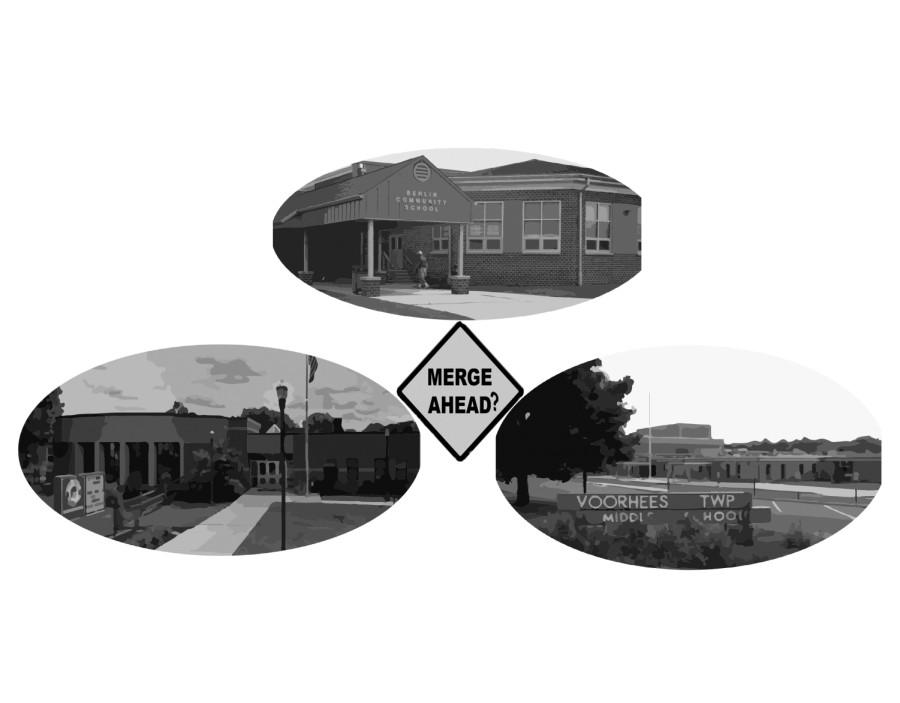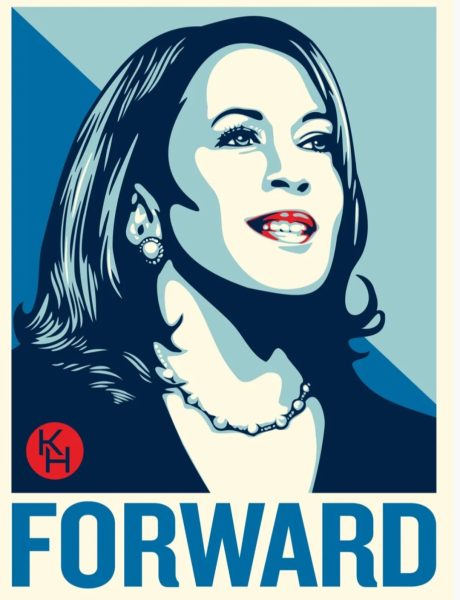Debate: Would combining Berlin, Gibbsboro, and Voorhees into a K-12 make sense?
Yes. Tax payers and students will benefit
Students are divided on the possibility of school consolidation
In the summer of 2018, the New Jersey Economic & Fiscal Policy Workgroup released the Path To Progress report, a series of reforms intended to fix statewide issues. One such proposal called for the consolidation of nearly half of the state’s school districts.
Certain districts categorized as K-4, K-5, K-6, K-8, and K-9 would be required to merge into regional K-12 districts.
As a result, Eastern High School’s sending school districts, Berlin, Gibbsboro, and Voorhees would be affected by this. Senate President Steve Sweeney publicly endorsed the proposal, citing two main reasons: it could deliver better education at a lower cost while also easing a heavy burden on taxpayers.
Critics argue that consolidating districts would be a waste of resources and could lead to the closing of schools and loss of autonomy, but in reality, these critics just lack a proper understanding of the proposition.
The New Jersey Senate should adopt the proposal to consolidate school districts, such as Berlin, Gibbsboro, and Voorhees, because it will ultimately lead to higher quality education and a healthier local economy.
This is not the first time New Jersey has attempted to consolidate schools; Governor Jon Corzine advocated for a similar plan in 2007 when he was in office. The response to this, much like the current situation, was unfavorable.
According to Katherine Barrett and Richard Greene’s “Why Schools Resist Consolidating,” a merger would give too much power to the larger schools, leaving less representation for the smaller schools. Whatever concerns the smaller schools have would be overshadowed by those of the larger schools. This loss of autonomy is a reasonable concern, especially for the students and families who will be directly affected by this.
However, because the plan still exists as a proposal, the report stated that New Jersey has the option of introducing either fully integrated countywide school districts or countywide administrative districts under which “school districts would maintain autonomy but share administrative and support operations.”
The schools in the countywide administrative districts would be independent from one another but would still be able to afford niche subject teachers. Therefore, if the state senate decides to pass the latter option, schools do not need to give up their independence in order for the community to receive financial benefits.
The financial aspect is a bonus that comes with the better education opportunities.
According to “Sweeney Says It’s Time to Get Serious About Consolidating Schools in New Jersey,” a 1993 study by Rutgers Professor Ernest Reock found that if New Jersey followed through with a similar plan that would cut the number of districts in half, the state could save $32 million in administrative costs a year and $200 million overall.
Although this would only be a fraction of the $40 billion that the state collects for education, any savings would be good enough. Opponents also argue that administrators would lose their jobs, but across the state, there are actually many vacant board positions.
New Jersey School Boards Association reported that about 1.5 candidates competed per open seat over the past two decades, with many more districts having no candidates at all. With decreased seats there will be competition, and competition will bring forth the best of the best.
As a resident of Voorhees and a student at Eastern High School, I have first-hand experience in a K-8 district. When I came to high school, I realized there was no cohesion in the materials that my peers and I had learned. We were all honors students, but depending on which district we came from, some of us were more advanced than the others. This was most evident in my geometry class when the teacher had to reteach basic Algebra I concepts because they were not drilled properly. Additionally, Voorhees was the only district that gave eighth graders the opportunity to take a foreign language, so when high school came around, we were always one level ahead of the Berlin and Gibbsboro kids.
Property taxes, a portion of which funds the schools, are high in New Jersey, but they are especially exorbitant in Voorhees. It doesn’t help that we have to fund two different districts and two sets of administration. Any sort of tax decrease would be greatly appreciated amongst the property tax-paying citizens.
Better schools and less taxes sounds great, right?
Unfortunately, this is not the future of New Jersey communities unless there are major reforms. The consolidation of school districts will regulate education and lower taxes.
For the sake of the taxpayers and the children, we need to pass the proposal.







